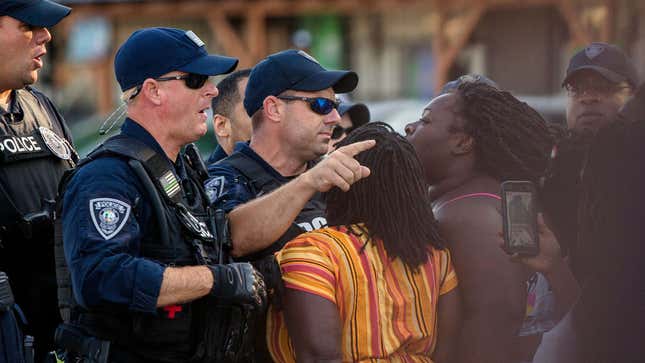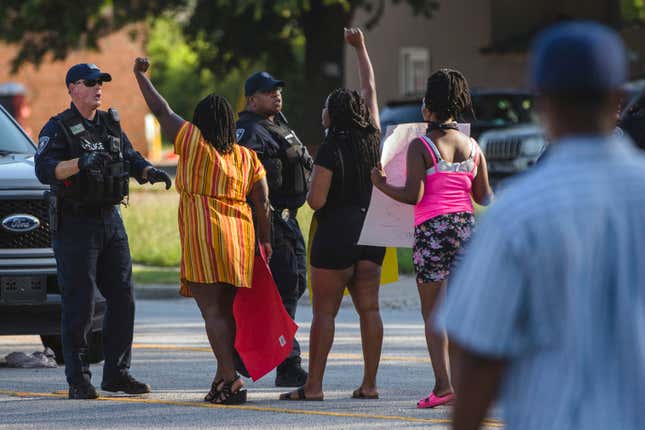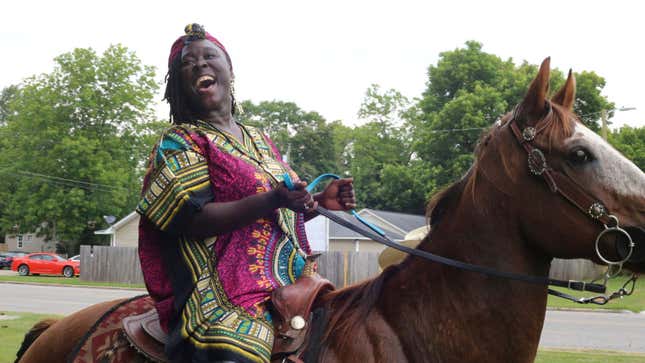A Pregnant Black Activist Is in Prison for Talking Back to Police, and Her Body Is Suffering
Brittany Martin has reportedly lost 12 pounds in prison, been physically attacked, and been taken to the hospital eight times due to pregnancy complications.
JusticePolitics

Earlier this year, activist Brittany Martin was sentenced to four years in prison in South Carolina over comments she made to police during a Black Lives Matter protest in 2020. Video footage from the protest shows the mother of four telling police officers, “Some of us gon’ be hurting. And some of y’all gon’ be hurting. We ready to die for this. We tired of it. You better be ready to die for the blue. I’m ready to die for the Black.”
Martin, a racial justice activist who co-founded Mixed Sistaz United to serve unhoused people and register voters, has currently served almost four months in prison since May. She’s due to give birth in November. Advocates and Martin’s legal team are currently fighting for her to be released, or at least receive a lesser sentence, citing the toll of prison on her pregnancy and the fact that she shouldn’t have been imprisoned in the first place.
“She’s in jail because she talked in America,” Sybil Dione Rosado, Martin’s trial attorney, told the AP. “She’s a dark-skinned Black woman who is unapologetically Black and radical.”
-

-

-

-

-

-

-

-

-

-

-

-

-

-

-

-

-

-

-

-

-

-

-

-

-

-

-

-

-

-

-

-

-

-

-

-

-

-

-

-










































